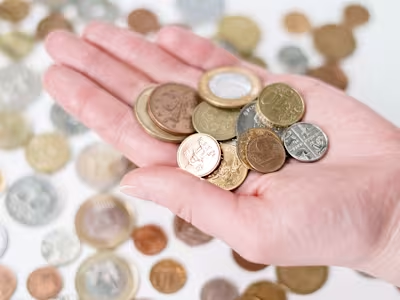Is chocolate the cure for your PMDD?
Like this project
Posted Aug 30, 2023
This is a short article on the relationship between chocolate and Premenstrual dysphoric disorder.
Likes
0
Views
44
Contrary to popular belief, Chocolate is very bitter. Yet, thanks to the infusion of sweeteners, Chocolate is known for its sweet, creamy and velvety taste. But, those qualities does not come close to the “feel-good” sensation one gets after consuming a bar of chocolate. No wonder chocolate is always ranked in the top 5 foods people crave worldwide. It has also been statistically proven that women crave chocolate more than men. And these chocolate craving tend to be higher the week leading up to a female’s period. Studies show that the average female encounter fluctuations of hormones each month which affects both food cravings and aversions.
Some females battle with a disorder called Pre-Menstrual Dysphoric Depression which causes a range of change in a female’s emotional well-being before or during her period. The feelings may range from feeling sad, upset, angry, overwhelmed, and suicidal. These fluctuations may affect relationship, productivity essentially lowering the quality of life during that dreaded time of the month. No wonder, chocolate cravings is heightened to quell the internal havoc.
Does chocolate really help?
Chocolate in fact does alters a person’s mood. The chemical composition of chocolate allows it to positively interact with the happy hormones in your brain such as endorphins, dopamine and serotonin. These happy hormones are the most favored because they relieve stress, improves sleep and most importantly stabilizes mood. They are not like the other “horror-mones”.
Chocolate consists of phenylethylamine, N-acylethanolamines, caffeine and theobromine. One of the main players behind the feel-good sensation after consuming chocolate is phenylethylamine. It’s a bitter chemical that increases the release of dopamine. Another big contributor is N-acylethanolamines which behaves like an anandamide. Anandamides are also called “bliss molecules” because of its euphoric properties. Caffeine and theobromine are structurally similar and both are major players in bitter taste of raw chocolate. They both increases the perception of feeling energetic. Interestingly, the concentration of caffeine and theobromine in chocolate is high enough to affect our neurotransmitter system
Does chocolate truly help with PMDD?
Though chocolate stimulates the feel-good effect, there are many arguments surrounding its psychoactive benefits. Research has proven that chocolate provides a short-term comfort but it may prolong depression. Hence, females can consume chocolate for its short-term benefits but do so in moderation.







